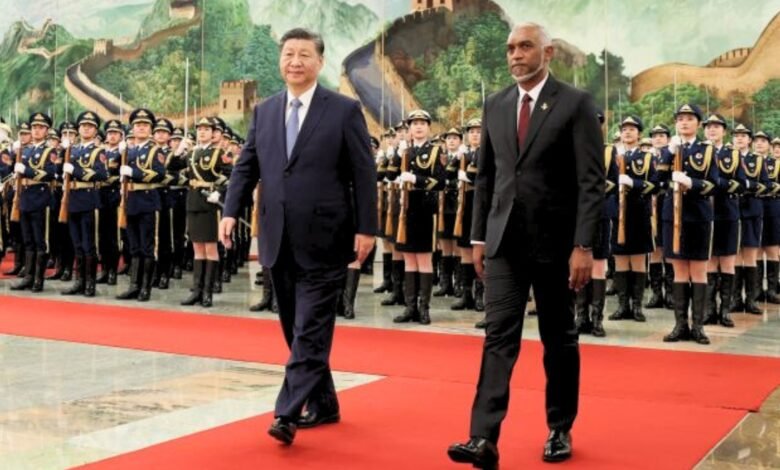China’s Gateway: How India’s Missteps Opened the Door for Beijing in the Maldives
China's interests now take precedence in the Maldivian government's agenda.

New Delhi, India: In the intricate web of international relations, the recent discord between India and the Maldives stands out as a critical diplomatic misstep. As we delve into the fallout of this rift, it becomes evident that our geopolitical manoeuvres may have unwittingly opened doors for China, leaving India isolated and vulnerable.
Ties Unravel, Alliances Shift: India-Maldives Relations in Turmoil
President Mohamed Muizzu’s recent visit to China following the turbulent ‘India-Maldives’ row paints a vivid picture of shifting allegiances. With a resounding electoral victory fueled by an “India Out” campaign, Muizzu’s symbolic choice of Beijing over New Delhi sends a clear message—China’s interests now take precedence in the Maldivian government’s agenda.
The Strategic Importance of Maldives
Geopolitically, the Maldives has been a crucial chess piece for India, strategically positioned with a vast exclusive economic zone (EEZ). Once a key ally countering Chinese influence, recent events have seen the expulsion of Indian military personnel, unravelling a carefully woven strategic alliance.
From Allies to Adversaries: Maldives’ Strategic Pivot Towards China
The social media uproar under the hashtag ‘#BoycottMaldives’ not only fueled unnecessary animosity but inadvertently played into the hands of those seeking to exploit the situation. Instead of a measured diplomatic response, India’s retaliatory stance inadvertently pushed a valuable ally closer into the grasp of China.
Maldives: A New Hub for Chinese Influence
China, ever-expanding its influence, has invested heavily in the Maldives, earmarking USD 1.4 billion and proposing ambitious infrastructure projects. Muizzu’s overtures to free trade with China and the proposed ‘Maldives-China Friendship Bridge’ under the ‘Belt and Road Initiative’ solidify the Maldives as a strategic haven in China’s growing sphere of influence.
China’s Checkmate: Maldives as the Latest Pawn in the Global Chessboard
A broader examination reveals a pattern of diplomatic setbacks, leaving India increasingly isolated in its neighbourhood. From Nepal’s political instability to Sri Lanka’s debt burden and Myanmar’s alignment with China, the once-stable alliances are unravelling. It’s imperative to acknowledge the urgency of reassessing India’s diplomatic strategies.
Geopolitical Dominoes: India’s Waning Influence in the Neighborhood
As the geopolitical landscape shifts, India must reassess its diplomatic approach. The Maldives episode serves as a poignant reminder that strategic blunders can have far-reaching consequences. A more nuanced and proactive stance is needed to counterbalance China’s growing influence in the region. The time for a comprehensive strategic repositioning is now, lest we find ourselves further isolated on the global stage.







